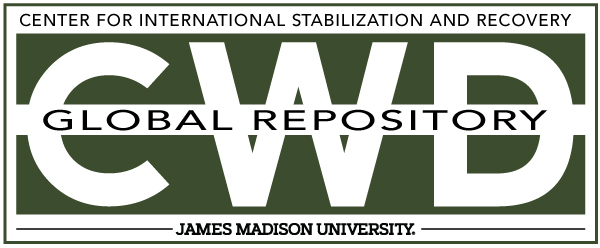Document Type
Article
Creative Commons License

This work is licensed under a Creative Commons Attribution-Noncommercial-No Derivative Works 4.0 License.
Publication Date
1-2007
Keywords
Risk Education, Cambodia, Mine Action, Landmines, Krisna UK
Abstract
This dissertation focuses on the ways Khmer peasants living in a landmine-affected community build their survival strategy in the face of dangers and uncertainties that may physically, economically and socially impair their lives. Rural families living in post-conflict areas face a wide range of risks that encompass but are by no means limited to anti-personnel landmines. Western frames of analysis have assumed that peasants are essentially risk averse. This paper argues that in a situation where families lack livelihood alternatives, it is by confronting risk that they protect themselves. This dissertation argues that distinctions between apparently risk prone and risk averse behaviour are inadequate especially when the professional removal of landmines is followed by local initiatives to put them back. Indeed such simple distinction fails to take account of the intricate linkages between time, local history, social organisation, political system, religious beliefs and human instinct for survival. This dissertation seeks to provide new insights into risk perceptions by drawing on ethnographic research into the knowledge, attitudes and practices of Khmer peasants. It is divided into three main chapters. The first chapter gauges and analyses the local exposure to vulnerability and discusses the array of risks the ordinary household faces on an everyday basis. The second chapter deconstructs the Euro-American definition of risk in light of local perceptions, understandings and risk-related discourse. The last chapter investigates peasants' pragmatic responses to risk and the ways local resilience, inventiveness and self-reliance form the basis of their survival strategy, hence crafting their own concept of "risk subsistence".
Included in
Defense and Security Studies Commons, Peace and Conflict Studies Commons, Public Policy Commons, Social Policy Commons



